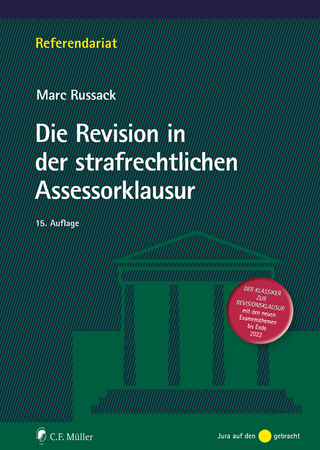
Why Don't You Just Talk to Him?
The Politics of Domestic Abuse
Seiten
2015
Oxford University Press Inc (Verlag)
978-0-19-026228-0 (ISBN)
Oxford University Press Inc (Verlag)
978-0-19-026228-0 (ISBN)
In contemporary times, US domestic policy is fragmented but has unifying factors, including a shift to communicative strategies that aim to keep families intact and urge counseling, batterer intervention programs, and/or legal mediation.
Why Don't You Just Talk to Him? looks at the broad political contexts in which violence, specifically domestic violence, occurs. Kathleen Arnold argues that liberal and Enlightenment notions of the social contract, rationality and egalitarianism -- the ideas that constitute norms of good citizenship -- have an inextricable relationship to violence. According to this dynamic, targets of abuse are not rational, make bad choices, are unable to negotiate with their abusers, or otherwise violate norms of the social contract; they are, thus, second-class citizens. In fact, as Arnold shows, drawing from Nietzsche and Foucault's theories of power and arguing against much of the standard policy literature on domestic violence, the very mechanisms that purportedly help targets of domestic abuse actually work to compound the problem by exacerbating (or ignoring) the power differences between the abuser and the abused. The book argues that a key to understanding how to prevent domestic violence is seeing it as a political rather than a personal issue, with political consequences. It seeks to challenge Enlightenment ideas about intimacy that conceive of personal relationships as mutual, equal and contractual. Put another way, it challenges policy ideas that suggest that targets of abuse can simply choose to leave abusive relationships without other personal or economic consequences, or that there is a clear and consistent level of help once they make the choice to leave.
Asking "Why Don't You Just Talk to Him?" is in reality a suggestion riven with contradictions and false choices. Arnold further explores these issues by looking at two key asylum cases that highlight contradictions within the government's treatment of foreigners and that of long-term residents. These cases expose problematic assumptions in the approach to domestic violence more generally. Exposing major injustices from the point of view of domestic violence targets, this book promises to generate further debate, if not consensus.
Why Don't You Just Talk to Him? looks at the broad political contexts in which violence, specifically domestic violence, occurs. Kathleen Arnold argues that liberal and Enlightenment notions of the social contract, rationality and egalitarianism -- the ideas that constitute norms of good citizenship -- have an inextricable relationship to violence. According to this dynamic, targets of abuse are not rational, make bad choices, are unable to negotiate with their abusers, or otherwise violate norms of the social contract; they are, thus, second-class citizens. In fact, as Arnold shows, drawing from Nietzsche and Foucault's theories of power and arguing against much of the standard policy literature on domestic violence, the very mechanisms that purportedly help targets of domestic abuse actually work to compound the problem by exacerbating (or ignoring) the power differences between the abuser and the abused. The book argues that a key to understanding how to prevent domestic violence is seeing it as a political rather than a personal issue, with political consequences. It seeks to challenge Enlightenment ideas about intimacy that conceive of personal relationships as mutual, equal and contractual. Put another way, it challenges policy ideas that suggest that targets of abuse can simply choose to leave abusive relationships without other personal or economic consequences, or that there is a clear and consistent level of help once they make the choice to leave.
Asking "Why Don't You Just Talk to Him?" is in reality a suggestion riven with contradictions and false choices. Arnold further explores these issues by looking at two key asylum cases that highlight contradictions within the government's treatment of foreigners and that of long-term residents. These cases expose problematic assumptions in the approach to domestic violence more generally. Exposing major injustices from the point of view of domestic violence targets, this book promises to generate further debate, if not consensus.
Kathleen R. Arnold is Visiting Assistant Professor of Political Science at DePaul University.
Introduction: Why Don't You Just Talk to Him? The Politics of Domestic Abuse ; Chapter 1: The Politics of Abuse and Realism ; Chapter 2: The Context of the Problem ; Chapter 3: Domestic Abuse and the Limits of Communication (Foucault, Habermas and Beyond) ; Chapter 4: The Enlightenment and Violence ; Chapter 5: Conclusion ; Acknowledgments ; Notes ; Bibliography ; Index
| Erscheint lt. Verlag | 12.11.2015 |
|---|---|
| Verlagsort | New York |
| Sprache | englisch |
| Maße | 236 x 163 mm |
| Gewicht | 567 g |
| Themenwelt | Geisteswissenschaften ► Philosophie |
| Recht / Steuern ► EU / Internationales Recht | |
| Recht / Steuern ► Strafrecht ► Strafverfahrensrecht | |
| Sozialwissenschaften ► Soziologie | |
| ISBN-10 | 0-19-026228-1 / 0190262281 |
| ISBN-13 | 978-0-19-026228-0 / 9780190262280 |
| Zustand | Neuware |
| Haben Sie eine Frage zum Produkt? |
Mehr entdecken
aus dem Bereich
aus dem Bereich
Buch | Softcover (2023)
C.F. Müller (Verlag)
24,00 €
Gerichtsverfassungsgesetz, Nebengesetze und ergänzende Bestimmungen
Buch | Hardcover (2024)
C.H.Beck (Verlag)
115,00 €
mit Auszügen aus Gerichtsverfassungsgesetz, EGGVG, …
Buch | Softcover (2024)
dtv Verlagsgesellschaft
12,90 €


